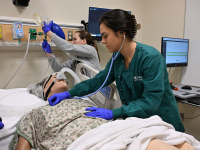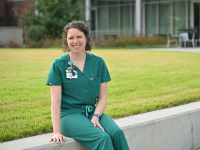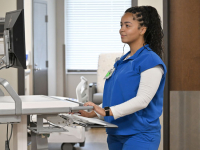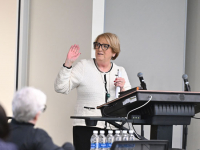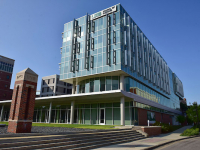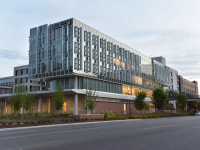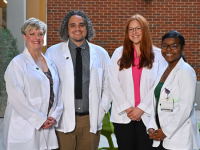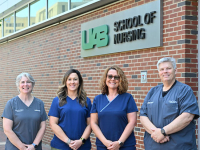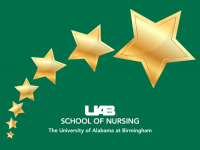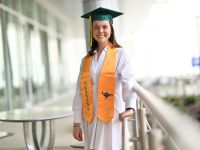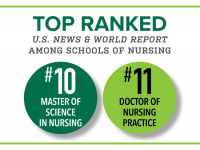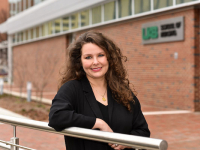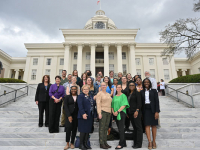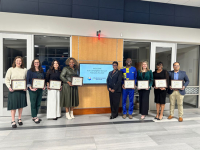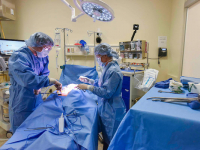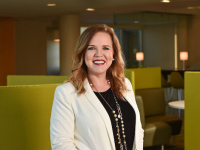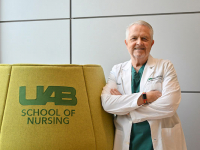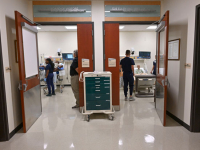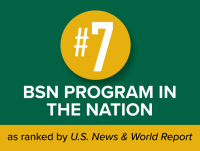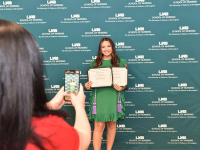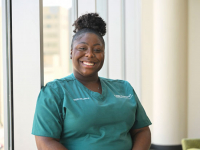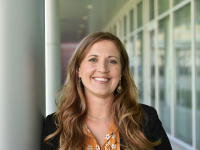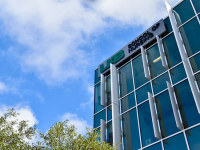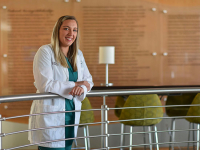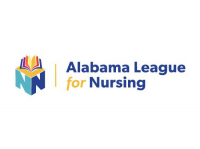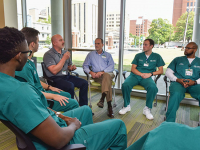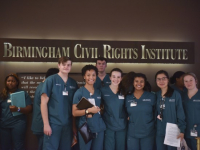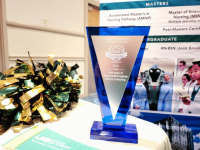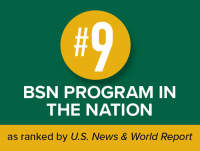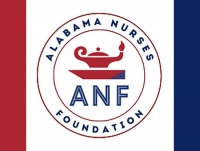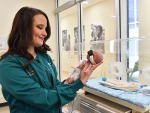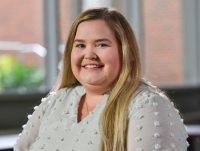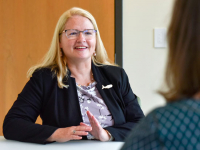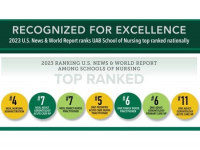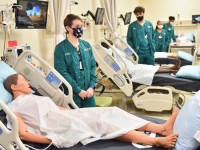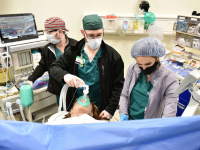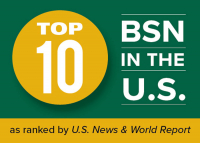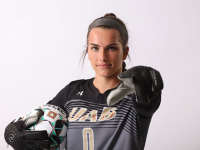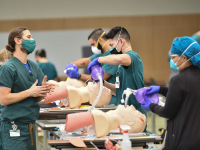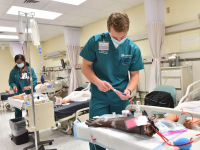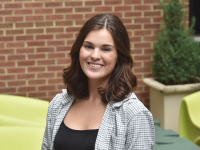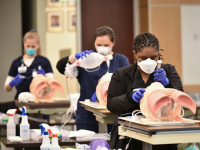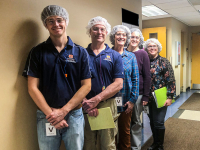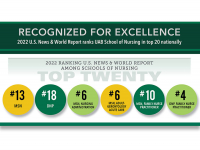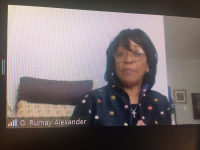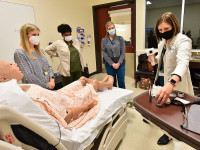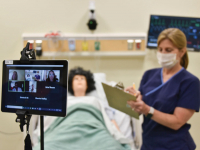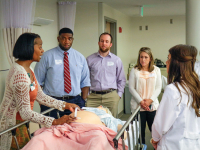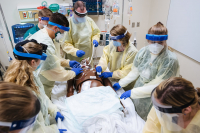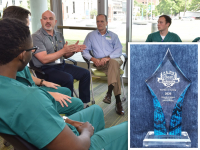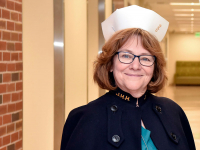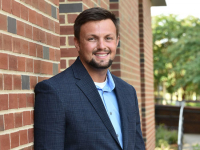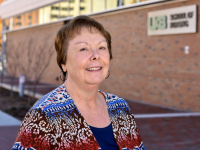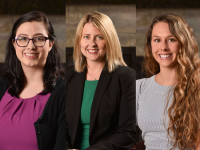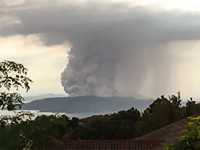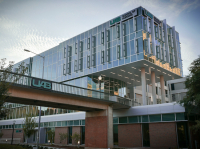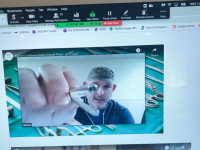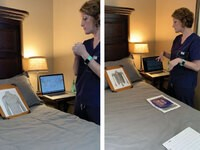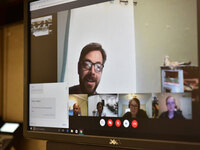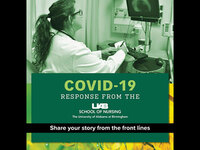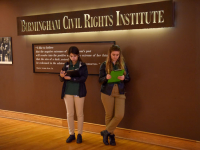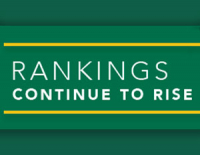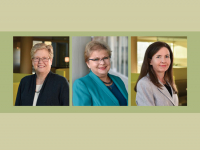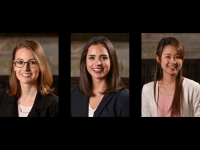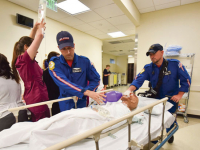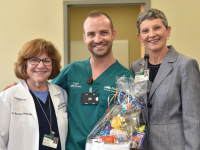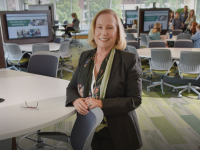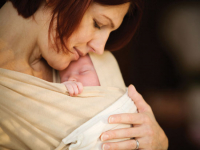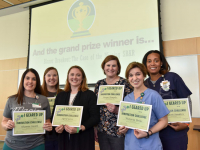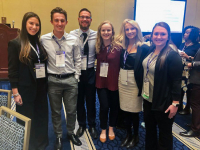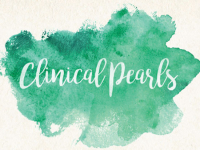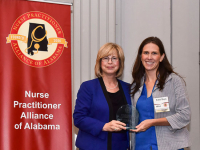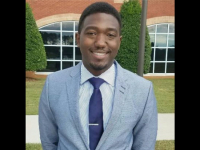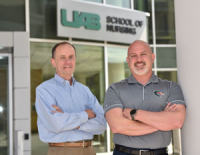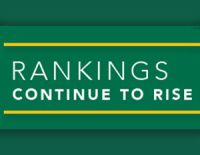
By Erica Techo
When the University of Alabama at Birmingham School of Nursing transitioned to remote teaching in late March to promote safety and social distancing in the face of the novel coronavirus (COVID-19), faculty were quick to adapt classroom learning, as well as skills and simulations, to the new circumstances.
The changes presented challenges, but Assistant Professor Summer Powers, DNP, CRNP, ACNP-BC, AACC, also recognized COVID-19 as a unique learning opportunity.
Along with Instructor Kathy Langley, MSN, CRNP, AGACNP-BC, Powers created an online learning module for her Bachelor of Science in Nursing students centered on the latest COVID-19 recommendations from the Centers for Disease Control and UAB Medicine, including donning and doffing techniques, patient interaction and more. As the COVID-19 situation has evolved, so has the information Powers includes in the learning module.
UAB Medicine, as a health system, is a national leader clinically and in research to combat COVID-19. Powers said it made sense to harness the knowledge of our on-campus partner to ensure UAB School of Nursing students are well prepared to join the fight after graduation.
“UAB is evaluating data and adjusting their protocols regularly, sometimes on a daily basis, which require frequent updates to content we teach our students,” Powers said. “Every night I review new information from UAB Medicine and adjust the learning module accordingly. Sharing this with students as it has evolved is a way not only provides them the best and latest education on COVID-19, it demonstrates how evidenced-based practice drives changes in patient care and how learning never stops and never should stop. My hope is that this helps them realize the impact of evidenced-based practice on their daily life as a nurse, utilizing a real-life and historical situation.”
Students have reacted positively to the module, Powers said, and have benefitted from seeing procedure updates in real time.
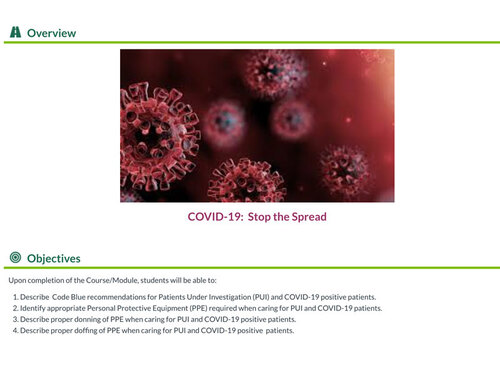
In addition to protocol memos, online simulations and instructional videos, the module also includes a quiz to emphasize key points and highlight differences between COVID procedures and standard protocol. For example, coding a patient now includes a strict observer role, Langley said, in order to keep an eye out for contamination.
“The quiz is a great vehicle to highlight the differences in how processes are adapted, and how topics from the classroom apply in such an unprecedented situation,” Langley said. “Students learn to put on PPE in their first semester, so we use the quiz to emphasize the different types of isolation health care providers are observing with COVID patients. We talk about why different types of PPE equipment — contact, droplet and airborne protection — are used.”
Since transitioning to remote learning, fourth semester student Palmer Miller has appreciated the innovative approach faculty are taking. The COVID-19 module, she said, not only supports topics learned in the classroom, but also provide important tools as she prepares to enter the workforce.
“My classmates and I will enter the workforce in four months, and it is really useful to have all of the COVID-19 protocol information in one place,” Miller said. “We learn all of this information in nursing school — that procedures change and are updated — but until you’re in the workplace, you don’t fully see how quickly things change. This module helps us feel like we’re a part of that process. I think it’s a good reminder that there’s more to nursing than just the care of the patient.”
For fellow fourth semester student MaryKate Terry, the module goes hand-in-hand with course topics while providing clarity among the constant news updates.
“When they added this COVID module to our skills class, we were actually covering ARDS (Acute respiratory distress syndrome) and MODS (multiple organ dysfunction syndrome), which is essentially what COVID patients are going through,” Terry said. “It is really interesting to have the module, which teaches us more than the news, and we are able to apply that in real-time to tie it all together.”
“Even though it is a longer module, I know it will be beneficial for my cohort,” Terry continued. “We’re graduating in a semester, and this will be us.”
Adapting to COVID-19 has been an interesting process and a learning experience at all levels of nursing, Langley said. Providing the COVID-19 module, especially with up-to-the-minute information from a national leader like UAB Medicine, is another tool UAB School of Nursing faculty are able to use to provide students leading edge educational experiences, better preparing them to enter the workforce.
“The COVID-19 pandemic helps demonstrate to our students that in nursing, we’re challenged with something every day, and being flexible is so important,” Langley said. “As unfortunate of a time that it is, it is an excellent learning opportunity for them.”

